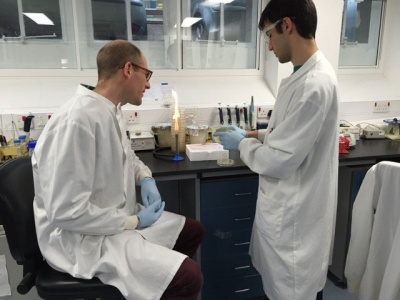Biorefining project seeks to cut waste in bioplastic production

The project, which started in January, aims to develop quiescent cell technology (Q-Cells) and will evaluate the Q-Cell performance under process relevant conditions by monitoring the production of 3-hydroxybutyrate, a chiral molecule that is a building block for biodegradable plastics (bioplastics).
The UK chemicals industry currently has a turnover of over £57 billion, and the CPI says that industrial biotechnology will contribute between £4-12 billion by 2025, with the bioplastics market predicted to grow from 1.4 million tonnes in 2012 to over six million tonnes by 2017.
The CPI says that Q-Cell technology suspends unnecessary cell metabolism and growth while maintaining the production of chemicals products, a state known as quiescence. This study will assess the potential of the technology to improve the competitiveness of industrial biotechnology to produce bulk chemicals.
CPI will lead the project at its headquarters in Wilton working alongside the University of Cambridge. The partnership combines the process knowledge and industrial network of CPI with the academic expertise in microbial genetics, synthetic biology and strain engineering of the University.
‘A basic research programme’ can turn into technology with real benefits
Dr David Summers, Group Leader of the Department of Genetics at the University of Cambridge previously undertook research on Q-Cell technology in E. Coli. Commenting on the new collaboration, Summers said: "This collaborative venture with CPI provides an ideal opportunity to move [Q-Cells] out of the academic environment and meet the challenges of the market place.
"It is exciting to see that…the results of a basic research programme in a University can potentially be translated into technology with real economic benefits."
Steve Pearson, Business and Strategy Manager at CPI, said: "If successful, this exciting technology has the potential to transform the economic feasibility of a number of industrial biotechnology processes.
"This project forms part of suite of novel ‘enabling technology’ development projects being developed at CPI in engineering and biotechnology. We look forward to working closely with the University of Cambridge on this project."
More information can be found at CPI’s website.





